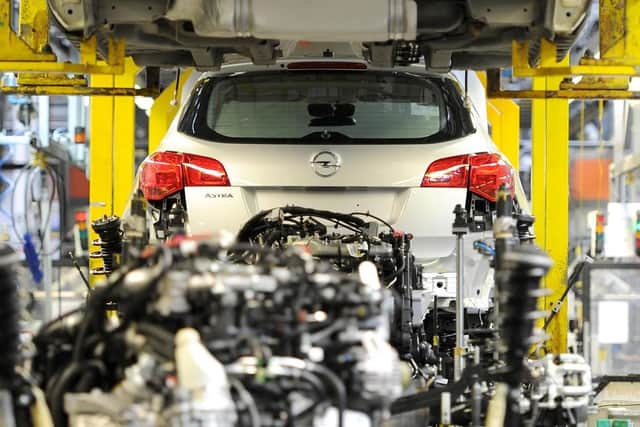Rashmi Dube: How artificial intelligence is impacting the car industry


According to the Automotive Council UK (ACUK) “… in the East Midlands and Yorkshire… Over a third of automotive manufacturers produce components.


A quarter produce commercial vehicles, one fifth are aftermarket suppliers.” In June 2017, the ACUK ‘s report “Growing the Automotive Supply Chain: Local Vehicle Content Analysis” found “…cars manufactured in Britain are becoming more British…”
Advertisement
Hide AdAdvertisement
Hide AdA main reason quoted in the report was “the parts sourced by UK car manufacturers from UK first-tier suppliers has increased from 36 per cent in 2011, to 44 per cent in 2017.”
This is of course great news for the UK – but we would be foolish to ignore the advancements in technology, including artificial intelligence (AI) and how it has infiltrated a large part of our lives, domestically, commercially and politically.
The introduction of AI within the automotive industry does not just stop at the manufacturing level.


Commercially, the automotive market is changing, and some are responding to the changes, whilst others are grabbing AI and what it has to offer and building new in roads on how to approach their consumers.
Advertisement
Hide AdAdvertisement
Hide AdThere is a new generation of consumers with differing behaviours and as such, automotive retail should already be adapting and making changes to meet the new demands.
A report by Accenture shows 23 per cent surveyed disliked “having to negotiate prices” and 15 per cent “are disappointed with not being able to buy online.
The report concluded “customers are demanding options to buy online at fixed and transparent prices.”


Some are taking the change a step further and ensuring that they provide a vehicle model that is not just one the customer may want but be as close to an idea of perfect they can get. How?
Advertisement
Hide AdAdvertisement
Hide AdBig data is the key. The first step has already been taken by the automotive industry – collecting data exclusively online, predominantly connected with consumer purchasing habits. There is now a move to use AI in vehicles to collect data on the consumers’ needs, behaviours, likes and dislikes.
AI is being used to understand the consumer’s behaviour, taste and preference.
Combine the data together and the AI analysis will allow the industry to develop vehicles better suited for their market– avoiding or reducing the chances of placing into the market a vehicle like the DeLorean DMC-12 which can be of course be a costly situation.
The consumer will no longer need to enter a showroom but can order their vehicle online with all their preferences and extras.
Advertisement
Hide AdAdvertisement
Hide AdHowever, AI technology has advanced even further where Toyota and Volvo have announced they will be investing in having the ability to scan a vehicle 360 degrees, creating its own unique identifiers much like a fingerprint.
Given that Volvo and Toyota are proceeding with this technology, we have to wait and see how this will impact the rental companies and fleet vehicles.
The advancement in technology is here to stay and entwined into our world and everyday lives. Understanding it is paramount and in doing so, asking questions is critical.
Who is controlling the data input? Who has access to the data? How is the data being gathered? How is the data stored and shared? Who is buying the data, and in light of recent big data issues, will the consumer be “managed” or “influenced” in making their decisions about what vehicle they purchase or rent and where they go for their maintenance and upkeep of the vehicle?
Although most will be steaming ahead, they should have an ethics policy in place, and it ought to be at the forefront of the industry and its users’ minds.